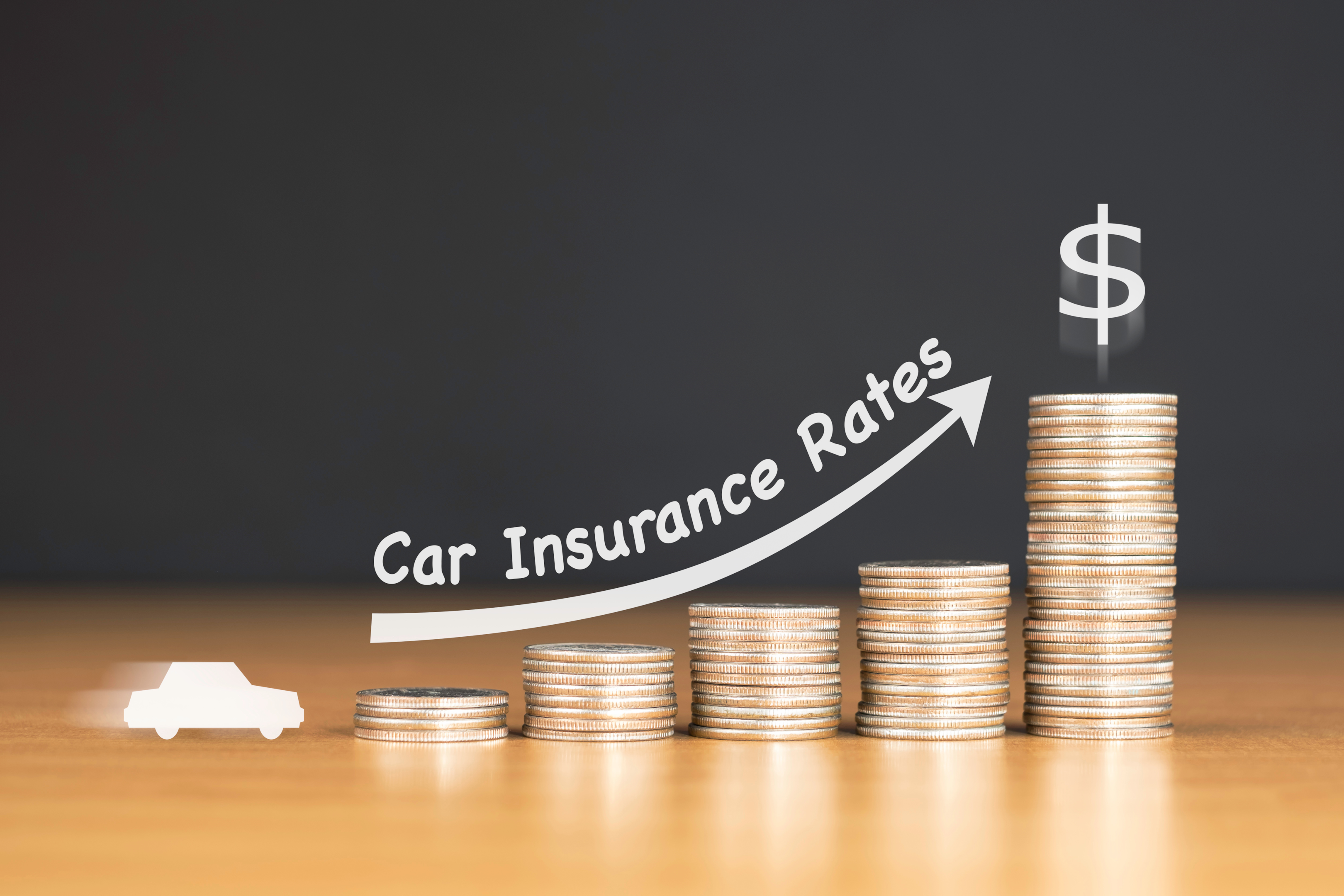How Do Traffic Violations on Your Driving Record Affect Your Auto Insurance Rates?
As a driver, you may be aware that your driving record plays a crucial role in determining your auto insurance rates. Your driving record is essentially a report that details your history of driving, including accidents, traffic violations, and other incidents that can impact your driving ability.
Insurance companies use this information to assess the risk associated with insuring you, and as a result, your driving record can significantly impact the cost of your insurance premiums. In this article, we will explore how traffic violations on your driving record can affect your auto insurance rates.
Understanding the Link: How Traffic Violations Lead to Higher Insurance Rates

Insurance companies use a variety of factors to determine the cost of auto insurance premiums, and one of the most significant factors is the driver’s record. A driving record is essentially a report card of a driver’s history of driving, including accidents, traffic violations, and other incidents that may impact their driving ability.
Insurance companies use this information to assess the risk associated with insuring a particular driver, and as a result, a driver’s record can significantly impact the cost of their insurance premiums.
Traffic violations, in particular, are a major factor that can lead to an increase in insurance rates. Insurance companies view traffic violations as an indicator of a driver’s risk and likelihood of filing a claim. When a driver receives a traffic violation, it is recorded on their driving record, and the severity of the violation can impact the rate increase.
Minor traffic violations such as speeding or running a stop sign may result in a small increase in rates, but more severe violations like DUI or reckless driving can result in much higher rate increases. In general, the more serious the violation, the higher the increase in rates.
The reason for this increase in rates is due to the increased risk that the driver poses to the insurance company. A driver who has a history of traffic violations is more likely to file a claim in the future than a driver with a clean record. Insurance companies base their rates on the likelihood of a driver filing a claim, and a driver with a history of violations is considered to be a higher risk.
Additionally, insurance companies are required to pay out claims when a driver is at fault in an accident. Therefore, a driver with a history of violations is not only more likely to file a claim but also more likely to cause an accident, leading to a higher risk for the insurance company. As a result, drivers with a history of traffic violations are considered to be higher-risk drivers and are charged higher rates to offset the increased risk.
It is important to note that the impact of traffic violations on insurance rates can vary depending on the insurance company and the driver’s policy. Some insurance companies may have more lenient policies when it comes to minor violations, while others may be more strict. Additionally, a driver’s record may also impact their ability to qualify for certain types of insurance or coverage levels.
Traffic violations can significantly impact a driver’s auto insurance rates. Insurance companies use a driver’s record to assess the risk associated with insuring them, and drivers with a history of violations are considered to be higher-risk drivers.
The severity of the violation can impact the rate increase, and the impact can vary depending on the insurance company and policy. To avoid high insurance rates for your motor vehicles, it is essential to practice safe driving habits, pay tickets on time, and review driving records regularly to ensure accuracy.
» More: Improve Your Driving Skills and Maintain a Clean Driving Record
Overview of Common Traffic Violations

Traffic violations are common occurrences on roads and highways across the country. Traffic violations can range from minor infractions, such as a failure to signal, to more serious offenses, such as driving under the influence of drugs or alcohol. In this section, we will provide an overview of common traffic violations and their potential impact on driving records and insurance rates.
Speeding
Speeding is one of the most common traffic violations, and it can lead to fines, points on the driving record, and increased insurance rates. In general, the faster a driver is going above the speed limit, the more significant the impact on their record and rates. Repeat offenses can lead to license suspension or revocation.
Failure to Yield
Failure to yield violations occur when a driver fails to give the right-of-way to another driver or pedestrian. This can occur at intersections or when merging onto highways. Failure to yield can result in points on the driving record and increased insurance rates. In some cases, failure to yield can lead to serious accidents and injuries.
Running Red Lights or Stop Signs
Running a red light or stop sign is a serious violation that can result in points on the driving record, fines, and increased insurance rates. These violations are often associated with serious accidents and injuries, and they can lead to license suspension or revocation for repeat offenders.
Driving Under the Influence
Driving under the influence of drugs or alcohol is a serious offense that can result in fines, jail time, license suspension or revocation, and increased insurance rates. DUIs can have a significant impact on a driver’s record and insurance rates, and they can also lead to serious accidents and injuries.
Reckless Driving
Reckless driving is a broad term that can encompass a variety of dangerous driving behaviors, such as weaving in and out of traffic, excessive speeding, or driving in a way that endangers others. Reckless driving is a serious violation that can lead to fines, points on the driving record, and increased insurance rates. Repeat offenders may face license suspension or revocation.
Driving with a Suspended or Revoked License
Driving with a suspended or revoked new york state license is a serious offense that can result in fines, jail time, and increased insurance rates. Repeat offenders may face more severe penalties, including permanent license revocation.
While any traffic violation can impact your driving record, some violations have a greater effect on your insurance rates than others. Generally speaking, violations that are more serious or have a higher risk of causing an accident will result in a higher increase in rates. For example, a speeding ticket may result in a small increase in rates, while a DUI conviction can result in a much more significant increase. In some cases, may even result in a policy cancellation.
In the face of traffic violations like speeding tickets or reckless driving citations, prompt action is crucial. Ensure you gather all the required documents, including your driver’s record, proof of insurance, and more, well ahead of your court date. Conveniently order your Texas driver’s record online through TX-DPS Records, and rest assured that we’ll expedite its delivery to you. Don’t delay – take control of your driver’s record today!
How Does a Ticket Affect Your Insurance?
Traffic tickets are a common occurrence for many drivers, and they can have a significant impact on your auto insurance rates. When you receive a ticket, it is recorded on your driving record, which can be accessed by insurance companies when determining your rates. In this section, we will discuss how a ticket can affect your insurance rates and what you can do to mitigate the impact.
Types of Tickets that Impact Insurance Rates
Not all traffic tickets are created equal when it comes to their impact on insurance rates. Generally, minor violations such as speeding or running a stop sign will have a smaller impact on your rates than more severe violations such as DUI or reckless driving. Insurance companies view more severe violations as an indicator of a higher risk driver, and as a result, the impact on your rates will be more significant.
Duration of Impact on Insurance Rates
The impact of a ticket on your insurance rates will depend on several factors, including the severity of the violation, your driving record, and your insurance company. In general, a ticket will remain on your driving record for three to five years, and during that time, it can impact your auto insurance rates.
Insurance companies may view a driver with a history of tickets as a higher risk, which can result in higher rates. However, the impact of a ticket on your rates will lessen over time, and as the ticket moves further into the past, its impact on your rates will decrease.
Options to Mitigate the Impact
There are several options available to drivers who want to mitigate the impact of a ticket on their insurance rates. One option is to attend a defensive driving course. In many cases, insurance companies will offer a discount to drivers who complete a defensive driving course, as it demonstrates a commitment to safe driving habits.
Another option is to fight the ticket in court. If you believe that the ticket was issued in error, you may be able to contest it in court. If you are successful in having the ticket dismissed, it will not be recorded on your driving record, and it will not impact your insurance rates.
Paying the Ticket
One of the most important things you can do when you receive a ticket is to pay it on time. If you fail to pay the ticket on time, you may incur additional fines and penalties, and the ticket will remain on your driving record, potentially impacting your insurance rates.
Additionally, paying the ticket can help to prevent the violation from being recorded on your driving record and impacting your insurance rates. While paying the ticket may result in an increase in rates, it is often a better option than allowing the violation to remain on your record and potentially cause a greater increase in rates.
Receiving a traffic ticket can have a significant impact on your auto insurance rates. The severity of the violation, your driving record, and your insurance company will all impact the extent of the impact on your rates.
However, by attending a defensive driving course, fighting the ticket in court, and paying the ticket on time, you can mitigate the impact of the violation on your insurance rates. It is essential to practice safe driving habits and review your driving record regularly to ensure accuracy and minimize the risk of receiving a ticket.
How a Defensive Driving Class Can Help with Your Auto Insurance Rates?
Taking a defensive driving course can be a great way to improve your driving skills and reduce your risk of receiving traffic violations. Additionally, completing a defensive driving course can often result in lower auto insurance rates.
Many insurance companies offer discounts to drivers who complete a defensive driving course. The discount can vary depending on the insurance company and the state, but in many cases, completing the course can result in a discount of up to 10% on insurance rates.
The reason why insurance companies offer discounts for completing a defensive driving course is that the course teaches drivers safe driving habits and risk avoidance techniques. By completing the course, drivers demonstrate a commitment to safe driving practices, which makes them less likely to file an insurance claim.
Another benefit of completing a defensive driving course is that it can help to remove points from a driver’s record. Many states allow drivers to have points removed from their records by completing a defensive driving course. Removing points from a driving record can help to lower insurance rates by demonstrating a commitment to safe driving habits and a reduced risk of future violations.
It is important to note that not all insurance companies offer discounts for completing a defensive driving course, and the discount can vary depending on the company and state. However, it is worth checking with your insurance provider to see if they offer a discount for completing a defensive driving course.
» More: 6 Benefits of Completing a Defensive Driving Course
How to Get a Copy of Your Driving Record?
If you want to know what is on your driving record and how it may be impacting your auto insurance rates, you can request a copy of your driving record from the Department of Public Safety (DPS). In Texas, the DPS is responsible for maintaining driving records, and you can request a copy of your record online or in person.
To request a copy of your official record online, you will need to provide your driver license number, date of birth, and the last four digits of your social security number. You will also need to pay a fee for the record, which can vary depending on the type of record you are requesting.
If you prefer to request a copy of your driving record in person, you can visit a local DPS office and provide the same information. You will also need to pay a fee for the record, and you may be required to provide additional identification documents.
Obtain Your Driving History Effortlessly with TX-DPS Records
Secure a comprehensive record of your driving history in under 12 hours by placing an order with TX-DPS Records. Our ordering process is straightforward, ensuring a quick and convenient experience. Upon completion, your driving record will be promptly emailed to you for easy access. To verify your identity, we require basic information. Simply provide the necessary details, place your order, and we’ll swiftly retrieve and deliver your driving record.
Take Control of Your Driving Record and Insurance Rates with TX-DPS Records
Are you worried about how traffic violations can impact your driving record and skyrocket your auto insurance rates? Look no further than TX-DPS Records for expert assistance. Our dedicated team offers fast and reliable driving record services, ensuring you stay well-informed about your driving history and enabling you to make informed decisions about your insurance coverage.
Whether you require a copy of your driving record for personal or professional purposes, we’ve got you covered. Our streamlined process ensures quick and hassle-free access to the information you need. Take the first step towards understanding the complexities of driving records and auto insurance rates by contacting us today at (888) 596-7307.
Let TX-DPS Records be your trusted partner in navigating the intricacies of driving records, empowering you to regain control of your driving history and potentially reduce your insurance premiums. Don’t wait—reach out to us now and take charge of your auto insurance rates!


 June 28, 2023
June 28, 2023 devTeam
devTeam